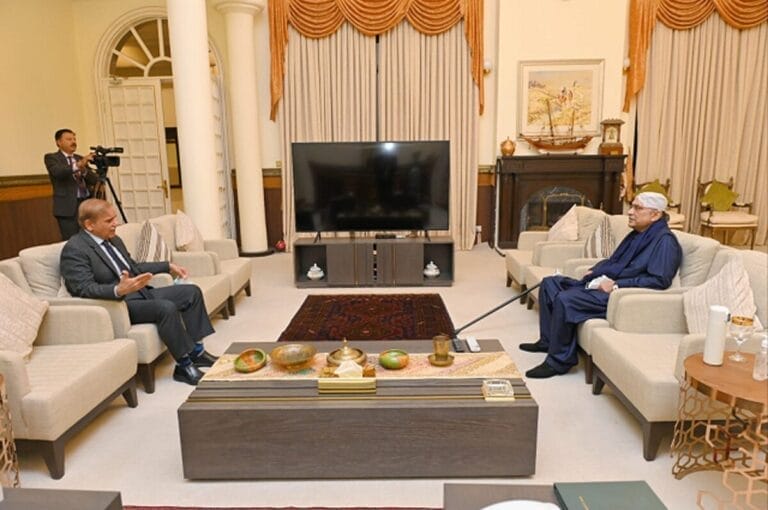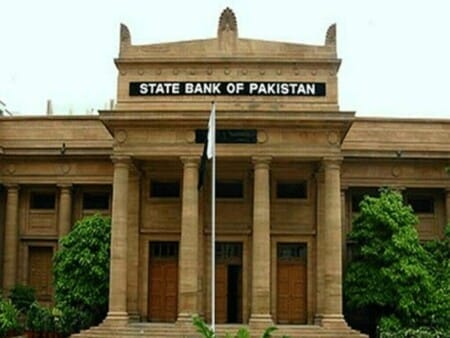In a landmark alliance, Pakistan’s largest political parties have concurred to form a coalition government, promising stability and progress.
After days of political uncertainty following a hung parliament, two of Pakistan’s major political parties, the Pakistan Peoples Party (PPP) and the Pakistan Muslim League-Nawaz (PML-N), have finally struck a deal to combine forces and form a coalition government. This announcement concludes a ten-day series of intensive deliberations ignited by the February 8th general elections, which failed to produce a clear victor.
The coalition is set to be led by Shehbaz Sharif, with the support of PPP under the presidency of Asif Ali Zardari. The two parties’ consolidation of resources is a strategic move aimed at establishing a stable administration in the face of Pakistan’s daunting economic challenges and escalating militant violence. This newfound unity represents a significant turn in Pakistan’s political landscape, promising a more resolute governance that can potentially lead the nation towards a path of recovery and growth.
What is the new political development in Pakistan?
Two significant political entities in Pakistan, the PPP and PML-N, have agreed to form a coalition government. The alliance declares Shehbaz Sharif as the prime ministerial candidate and Asif Ali Zardari for the presidential role.
The latest political development in Pakistan is the formation of a coalition government between the Pakistan Peoples Party (PPP) and the Pakistan Muslim League-Nawaz (PML-N). The coalition has nominated Shehbaz Sharif as the prime ministerial candidate and Asif Ali Zardari for the presidency, thereby ending the uncertainty following the February 8 elections that produced a hung parliament.
In the complex tapestry of political systems, coalition governments represent a form of governance where multiple political parties cooperate to form a majority in parliament. This delicate dance of mutual interests and compromise is often seen as a necessity in fragmented political landscapes, aiming to bring stability and representation to the governance of a nation. But, as with any political arrangement, coalitions come with their unique set of challenges.
Understanding Coalition Governments
Coalition governments typically emerge in parliamentary systems with multi-party structures where no single party can secure an absolute majority of seats. The coalition is formed through negotiations, where parties agree to a common legislative agenda and often share executive appointments, including ministerial positions.
The Challenges of Coalitions
Coalitions can be inherently unstable due to their reliance on the continued agreement between diverse parties. This complexity can lead to several challenges:
1. Compromise and Policy Dilution: Coalitions often require compromise to form a unified front. However, this can lead to diluted policies, where the distinct ideologies of the participating parties must be meshed, sometimes leading to watered-down or less effective legislation.
2. Internal Conflicts: Discrepancies in ideology and policy priorities can generate internal conflicts. When coalition parties have varying constituencies and policy goals, balancing these interests can be a herculean task, potentially leading to governmental paralysis or collapse.
3. Slower Decision-Making: The process of reaching consensus in a coalition can be time-consuming. Decisions that require the agreement of all partners may face delays, hindering the government’s ability to respond swiftly to urgent matters.
4. Unstable Leadership: Coalitions can be fragile, susceptible to breaking apart over policy disputes or leadership challenges. The instability can lead to frequent elections, resulting in political and economic uncertainty.
5. Accountability Issues: In coalitions, pinpointing responsibility for government actions can be difficult. When multiple parties are involved, it may be easier for them to deflect blame or claim credit, complicating the electorate’s ability to hold their leaders accountable.
On the Flip Side: The Resilience of Coalition Governments
Despite these challenges, coalition governments also manifest resilience. They represent a broad spectrum of the electorate, making the government more representative of a diverse population. They encourage political parties to collaborate and negotiate, often leading to more balanced and inclusive policies. Moreover, being a form of power-sharing, coalitions can help maintain political stability in a country with no dominant party.
Conclusion and a Look Forward
The balance between the fragility and the necessity of coalition governments encapsulates the complex nature of democratic governance. While they present challenges in terms of stability and efficiency, they can also foster a more representative and collaborative political environment. Ultimately, the success of a coalition government lies in the hands of its constituent parties and their commitment to the national interest above partisan goals.
Moving forward, it is imperative that political leaders within coalitions work towards effective communication, compromise, and a shared vision to navigate the intricacies of coalition governance. Transparent mechanisms for conflict resolution and strong leadership can help mitigate the problems inherent in these governments, ensuring they can govern effectively in a diverse political landscape.












